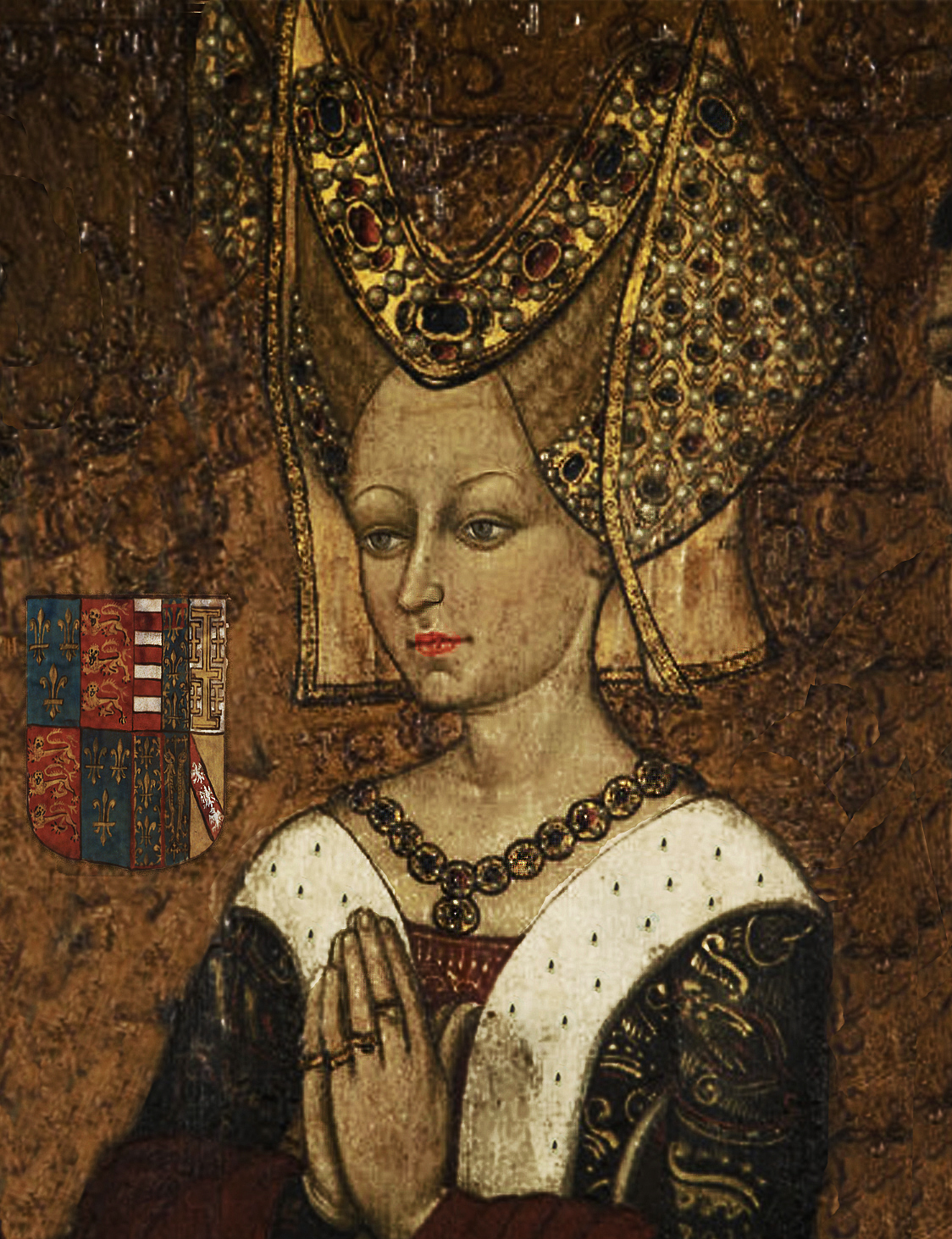| King Henry V |
| King Henry VI |
 |
| Margaret of Anjou |
1453 was the year of Henry's first mental breakdown. He sat, seemingly traumatized, never speaking to a single soul. The King recognized no one, not even his own wife. Nowadays it is believed he may have had catatonic schizophrenia, undoubtedly inherited from his grandfather, Charles the Mad. Richard, Duke of York served as regent during this time, hoping to get his family's power back to the throne; he was from the House of York, and they believed that they were the true royal heirs. During this period of lunacy, the Queen gave birth to the couple's first child, a son named Edward. Rumors were spread by the House of York that the child was actually the son of Edmund Beaufort, Duke of Somerset, the Queen's favorite. The rumors were supported when, after the King was back to his normal self, he did not recognize the child.
In 1455 the House of York and their supporters met the House of Lancaster and their supporters—which was, of course, King Henry VI's family and friends—at the town of St. Albans. There they battled, and Edmund was killed. Many Lancastrians fled, leaving Henry to defend himself. Although the Yorks certainly gained power after this battle, Henry's control was not completely gone. Not long after, Henry was once again in shock, while the Queen continued to fight with the Yorks. Viciously and steadfastly she supported peaceful Henry and her son's right to the throne.
In the next battle of 1460, Richard, Duke of York was killed. The Yorks didn't lose hope though. Richard's son, Edward (not to be confused with the younger Prince Edward, the King's son), continued the war. He was even fiercer than his father, and ultimately he caused Margaret and her son to flee to Scotland. Edward was crowned King Edward IV of England. As for Henry? He was held prisoner in the Tower of London.
| Edward IV - considered handsome in his day |
Edward IV was secretly married to the widow of one of the Lancastrians. Her name was Elizabeth Woodville. When he finally confessed of this marriage to his subjects, they were outraged. Richard Neville, Earl of Warwick, a long-time supporter of the Yorks, was especially disgusted—so much so that he quickly abandoned Edward and switched to the side of the Lancastrians. The Earl of Warwick fought to restore Henry's power, and he succeeded.
But Henry's second bout of ruling did not last too long, and it certainly wasn't very a happy time. His wife was off fighting wars, and that led to them both losing their son. He was only 17-years-old. The devastated Queen was briefly imprisoned, and after she was let out, she returned to Anjou. Margaret remained there for the rest of her life.
Shortly after, Edward IV was back in business. Henry was once again in the Tower of London, left alone to grieve over the loss of his only son. He was never to see his wife again, and he knew his destiny. Although Edward IV insisted that Henry died of melancholy, it is too likely that he was murdered wrongly, unjustly, and for what reason? Greed! Greed for power! After examining the bones in 1910, researchers found blood on Henry's skull.
After the death of the good King Henry VI, he was informally worshipped by many as a saint and martyr.
John Blacman includes in his memoir a prayer to King Henry VI. The last verse goes:
“O blessyd kyng so gracios and gudThou pray to sett this reme in restUnto our Saveyour that dyed on roudAnd to hys modyr that madyn blessydThat alkyn wrangys may be redressydTo plesor of the DeyteThys I besech at my requestNow swet kyng Henre praye for me.”
